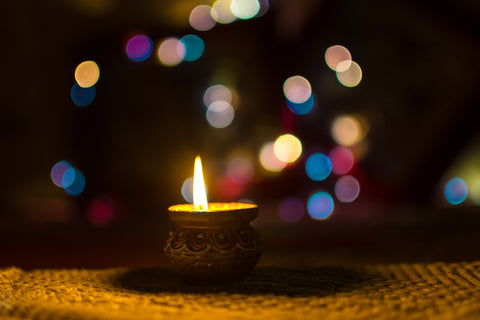Ayurveda originated in ancient India, tracing its roots back to the Vedic civilization, which flourished in the Indian subcontinent around 1500 BCE.
The foundational principles of Ayurveda were created during this time, with contributions from revered sages and scholars such as Charaka and Sushruta. It is recognized as one of the oldest traditional systems of medicine, with ancient wisdom still unexplored [1].
Ayurveda in Indian Culture
In Indian culture, Ayurveda is deeply integrated into various aspects of daily life. It extends beyond mere healthcare to encompass the whole self, embracing diet, lifestyle, herbal medicine, yoga, meditation, and spiritual practices. Ayurvedic principles permeate traditional Indian medicine, culinary traditions, beauty rituals, and even architectural designs.
Here are some areas where Ayurveda's wisdom is commonly found:
- Healthcare Practices: Ayurveda is a cornerstone of healthcare in India, with millions of people relying on Ayurvedic remedies to naturally support ailments and maintain immunity. Ayurvedic practitioners, known as vaidyas, diagnose illnesses based on the dosha imbalances and prescribe personalized treatment plans made up of herbal medicines, dietary recommendations, and lifestyle modifications.
- Cultural Festivals and Rituals: Ayurveda influences various cultural practices and rituals in India. For instance, Ayurvedic herbs and spices are used in traditional cooking during festivals and religious ceremonies. Additionally, practices like Panchakarma, an Ayurvedic detoxification therapy, are performed during auspicious occasions for spiritual purification and rejuvenation.
- Yoga and Meditation: Ayurveda shares a symbiotic relationship with yoga and meditation, both of which are deeply ingrained in Indian culture. Yoga, with its emphasis on physical postures (asanas), breath control (pranayama), and meditation, complements Ayurveda's holistic approach to health by promoting balance and harmony of mind, body, and spirit.
- Household Remedies: Ayurvedic home remedies are passed down through generations in Indian households. Simple remedies using herbs, spices, and oils are used to help heal common ailments such as colds, digestive issues, and skin problems.

History of Ayurveda Timeline
The Vedic Era (1500 BCE - 500 BCE)
The origins of Ayurveda can be traced back to the Vedic period, a time when the sacred texts known as the Vedas were composed. Among these texts, the Rigveda, dated around 1500 BCE, contains hymns dedicated to health and healing. It is believed that Ayurveda evolved from these early philosophical and medical concepts.
The Birth of Ayurvedic Knowledge (500 BCE - 200 CE)
The core principles of Ayurveda began to take shape during the Vedic period and flourished during the subsequent centuries. It was during this time that the foundational texts of Ayurveda, known as the Charaka Samhita and Sushruta Samhita, were written. These texts, attributed to the ancient sages Charaka and Sushruta respectively, laid down the principles of diagnosis, treatment, surgery, and the use of herbs and minerals in healing.
The Golden Age (200 CE - 1200 CE)
The Gupta period (4th to 6th centuries CE) is often referred to as the Golden Age of Ayurveda. It was during this time that the knowledge of Ayurveda reached its zenith, with significant contributions from scholars like Vagbhata, who compiled the Ashtanga Hridaya, and Madhava, who wrote the Nighantu texts.
Transmission to the West (8th - 14th Century CE)
As trade routes expanded, Ayurvedic knowledge traveled beyond the borders of the Indian subcontinent. Arab scholars translated Ayurvedic texts into Arabic, preserving and disseminating this ancient wisdom across the Islamic world. It was during this period that Ayurveda influenced Persian and Greek medicine, laying the groundwork for the development of Unani Tibb and Greco-Arab medicine.
Challenges and Revival (16th - 19th Century CE)
The medieval period saw a decline in Ayurvedic practice due to foreign invasions and colonial rule. However, Ayurveda persisted in the face of adversity, with practitioners preserving the tradition through oral transmission and handwritten manuscripts. The British colonization of India led to a suppression of indigenous medical systems, yet Ayurveda continued to endure in the hearts and homes of the Indian populace.
Modern Ayurvedic Renaissance (20th Century CE - Present)
The 20th century witnessed a resurgence of interest in Ayurveda, both in India and abroad. Visionaries like Mahatma Gandhi advocated for the integration of traditional medicine into modern healthcare systems. The establishment of Ayurvedic colleges, research institutions, and regulatory bodies in India further propelled Ayurveda into the mainstream.
Ayurveda’s Global Popularity
Ayurveda started as one of the most ancient forms of medicine in the world. Today, people across the globe see the value in Ayurvedic wisdom and experience its health and lifestyle benefits.
Several factors have allowed Ayurveda to gain global traction, some of which are listed below.
Globalization. Information through books, the internet, and social media has spread a greater awareness and interest in Ayurvedic principles and practices in parts of the world beyond India. Social media in particular has had a huge impact in helping Ayurveda reach more people in the Western world through influencers such as Nidhi Pandya, Radhi Devlukia-Shetty, and Julie Bernier.
Medical Tourism. India has become a hub for medical tourism, attracting visitors from around the world seeking alternative and holistic healthcare solutions. Ayurvedic resorts and wellness centers in India offer specialized therapies, detox programs, and rejuvenation packages.
Scientific Validation. The scientific validation of Ayurveda’s principles and practices has gathered attention and credibility on the global stage. Research studies exploring the efficacy of Ayurvedic treatments have contributed to its acceptance into many mainstream healthcare systems [2].
Cross-Cultural Exchange. Ayurveda has influenced and been influenced by other traditional healing systems, such as Traditional Chinese Medicine and Tibetan Medicine. Cross-cultural exchanges have allowed them to exchange knowledge, practices, and medicinal plants, creating a rich global tapestry of natural healthcare.
🌿🌿🌿
Ayurveda is at the foundation of our philosophy and the products we create here at Potion. Our mission is to marry soul and science for a perfect blend of health and harmony.








